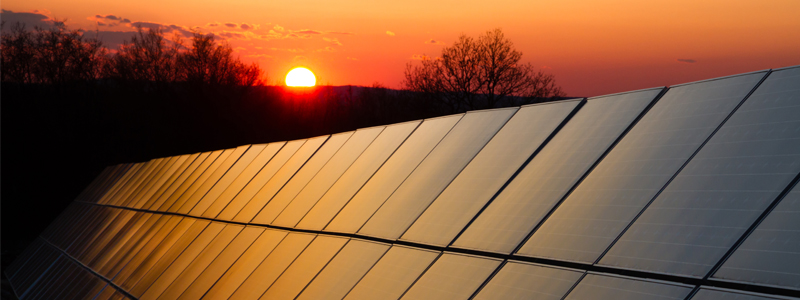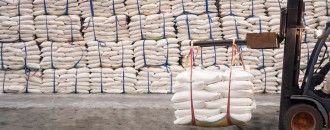
Indian government hints at imposing anti-dumping duty on solar modules
The Dollar Business Bureau | @TheDollarBiz  While companies that are dependent on imports of soar modules from China and other countries are vehemently opposed to imposition of anti-dumping duties on solar modules (Read Anti-dumping duty on solar modules will be a big mistake: N. Surana), the Indian government hinted today that it may be a reality soon. Minister of Commerce Nirmala Sitharaman, citing the Director General of Antidumping & Allied Duties (DGAD), informed the Parliament today that solar modules and other parts have been exported to India from China PR, Chinese Taipei, Malaysia and USA “below its normal value”, which has hurt the domestic manufacturing industry represented by Indian Solar Manufacturers Association (ISMA). DGAD has recommended imposing anti-dumping duties between $0.11 per watt to $0.81 per watt on solar imports from China PR, Chinese Taipei, Malaysia and USA. Sitharaman said that the recommendations are under the consideration of the Ministry of Finance. However, her statement hints at a move closer to imposition of anti-dumping duties. Those opposed to anti-dumping duties say that solar project costs will increase significantly and adversely affect India’s solar programme. According to the Associated Chambers of Commerce and Industry of India (ASSOCHAM), project costs will increase between 18.83% and 75% or between Rs.22,120 crore and Rs.87,500 crore for installing a capacity of 17,000 MW. Sitharaman said that cost for the solar power developers may increase, but added that the collected anti-dumping duties can be placed in the hands of Ministry of New and Renewable Energy (MNRE) to provide additional subsidy to neutralize the additional capital cost of the solar power developers. “Further, the National Clean Energy Fund, which is intended to develop clean energy in the country, can also be utilised to provide subsidies to projects which may be affected by the anti-dumping duties,” she added. She also said that the prices of solar cells and modules in India are market driven and no regulator has been notified by MNRE for the purpose.
While companies that are dependent on imports of soar modules from China and other countries are vehemently opposed to imposition of anti-dumping duties on solar modules (Read Anti-dumping duty on solar modules will be a big mistake: N. Surana), the Indian government hinted today that it may be a reality soon. Minister of Commerce Nirmala Sitharaman, citing the Director General of Antidumping & Allied Duties (DGAD), informed the Parliament today that solar modules and other parts have been exported to India from China PR, Chinese Taipei, Malaysia and USA “below its normal value”, which has hurt the domestic manufacturing industry represented by Indian Solar Manufacturers Association (ISMA). DGAD has recommended imposing anti-dumping duties between $0.11 per watt to $0.81 per watt on solar imports from China PR, Chinese Taipei, Malaysia and USA. Sitharaman said that the recommendations are under the consideration of the Ministry of Finance. However, her statement hints at a move closer to imposition of anti-dumping duties. Those opposed to anti-dumping duties say that solar project costs will increase significantly and adversely affect India’s solar programme. According to the Associated Chambers of Commerce and Industry of India (ASSOCHAM), project costs will increase between 18.83% and 75% or between Rs.22,120 crore and Rs.87,500 crore for installing a capacity of 17,000 MW. Sitharaman said that cost for the solar power developers may increase, but added that the collected anti-dumping duties can be placed in the hands of Ministry of New and Renewable Energy (MNRE) to provide additional subsidy to neutralize the additional capital cost of the solar power developers. “Further, the National Clean Energy Fund, which is intended to develop clean energy in the country, can also be utilised to provide subsidies to projects which may be affected by the anti-dumping duties,” she added. She also said that the prices of solar cells and modules in India are market driven and no regulator has been notified by MNRE for the purpose.





 to success.
to success.